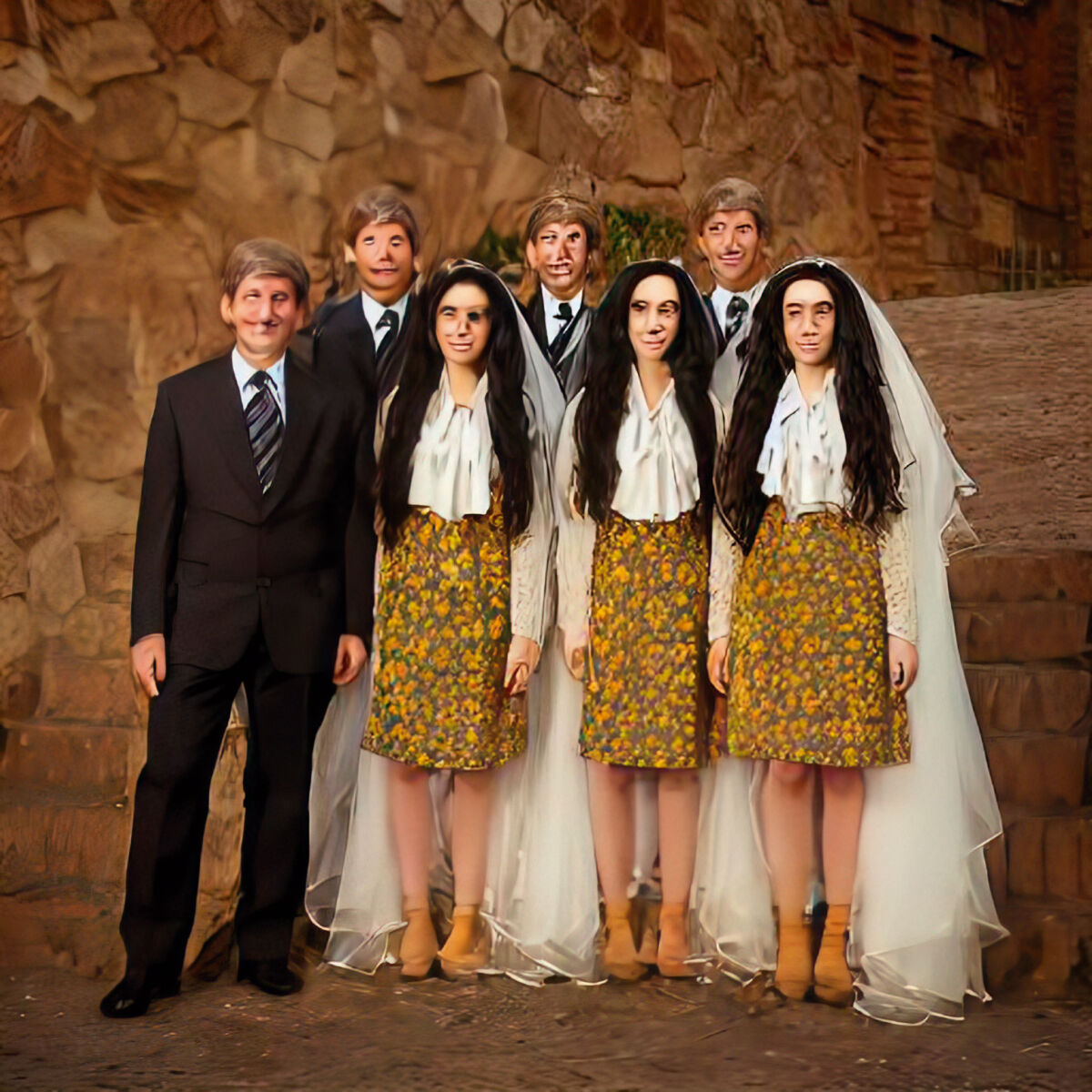Text by Irem Erkin
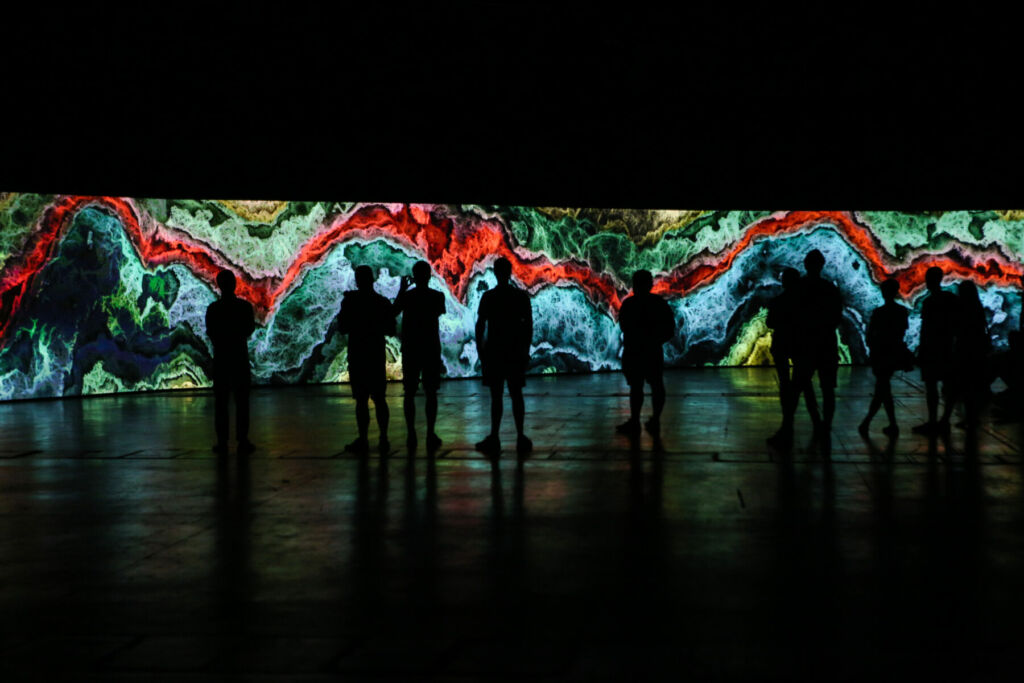
Celebrating its 30th anniversary this year, Sónar Festival and its organic extension, a decade-old Sónar+D, have always been ahead of their time while displaying the present culture at its best. That’s probably why the topic of AI has already been covered in Sónar Festival through different perspectives since 2016, and the first people who called attention to artificial intelligence were artists, says Antónia Folguera, Curator of Sónar+D.
The natural blend of human creativity and AI is inevitable because artists have been using technology to experiment, extend their language and aesthetics, and tell different stories about the world & our perception of the world. Most of these artists & visionary thinkers have always reinforced or highlighted the idea that artificial intelligence should be something that helps us, augment the capacity of our own bodies and allow us to make things that are not limited by human nature.
Folguera believes that this collaboration comes from a very human-centric sense, but also to be aware that we humans are very skilled at using technology as a weapon, which may also turn against us. Sónar+D’s respect for critics and contradicting ideas allow them to create a debate platform and, open discussions on ethics in AI. One of the selective guest speakers, world-leading robotic ethics expert Dr Kate Darling from MIT’s Media Lab, will undoubtedly provoke us into further thinking and push our mental boundaries in how advanced technologies will influence us humans and at what cost.
Antónia points out the rising AI anxiety through the complexity of keeping up with the accelerating evolution before our very eyes. Sónar+D’s prominent guest experts in interdisciplinary fields such as science, technology and art shall provide us with information, probabilities, and ideas of what this technology can do for the good, bad, and ugly.
Artificial intelligence is not the first example of machines collaborating with humans in art or music, she says; machines, instruments, or artefacts have always been collaborators. Musical instruments allow artists to express themselves in ways beyond human voice boundaries. Machines that artists use to create are already amplified to a level we biologically cannot achieve. Now that this amplification grows exponentially, the discourse comes out as a technological challenge rather than a creative challenge.
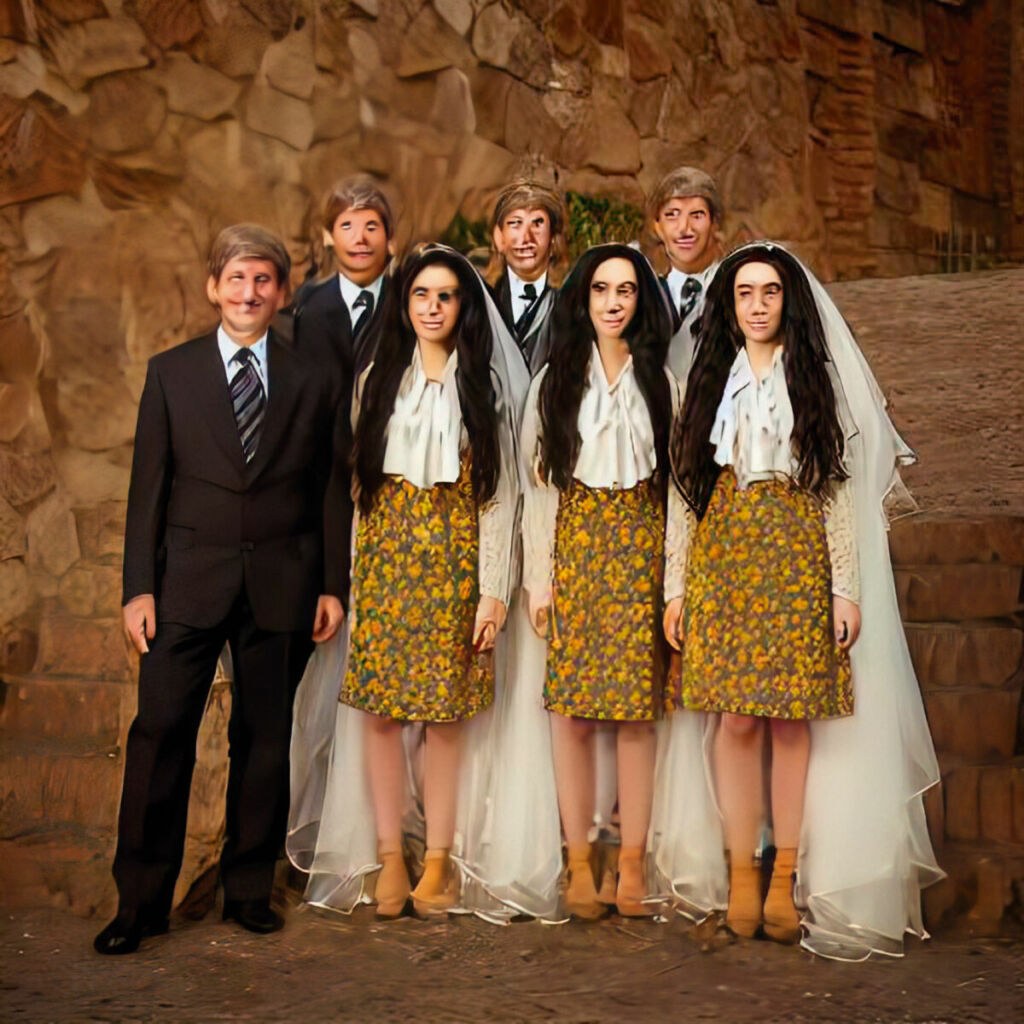
For Antonia, what will have a real impact on art, is not making the human redundant but changing the artistic language and bringing them to another level that wasn’t possible before this technology. And in music. She also thinks that once we get over this demo phase, it will develop in different languages, styles, sounds, and music genres because that’s what technology has done to music since technology’s involvement.
Like, when synthesizers appeared, then emerged electronic culture, and different youth cultures evolved. Same with the drum machines, and now there’s artificial intelligence. Hopefully, the next cultural revolution with other aesthetics, language and perhaps other age groups will empower that kind of artistic expression, she says.
We are on the verge of transforming notions of art, artists, and the creative processes through AI. In Sónar+D, we will witness really good examples such as Ryoji Ikeda and Daito Manabe, who use data and code aesthetics in an artistic dialect. Daito Manabe is known for his tech-forward nature, and he and his team always push new technologies to very interesting limits and directions.
Daito Manabe and Yuya Hanai, aka, Rhizomatiks, will give a master class, Generative AI and Arts in Sónar+D, explaining this generative AI aesthetics and how they are developing their own AI engines. And in developing their AI engines, they also consider the data and the data sets used. Artificial intelligence is trained collectively by us, by humans, by artists and their stories; their discourse goes very much in the following way; they are creating a ‘YouTuber’ which is basically like an avatar trained with the inputs of users like you and me, adding another thought-provoking layer of bringing the attention to the collective input.
Sónar+D’s lens is never just focused on one field; it observes the present and future of culture holistically, like the transversal artificial intelligence, diffusing in art, science, technology, society, and environment. That’s why precious projects like Domestic Data Streamers design studios take their place in the festival. Domestic Data Streamers create lost memories via AI for elderly people who have Alzheimer.
They record their stories, their voices, and what they say, and through one of these AI algorithms, they turn the audio of these stories into images. And so, these people who have forgotten about things are suddenly confronted with forgotten memories, which she thinks are very exciting. From an artistic perspective, it is poetic, facing your ‘Lost Memories’. But at the same time, Antónia thinks that it opens the door to research or question ourselves on what our memory is capable of, while machines have a better memory than we and machines are better at reaching them.
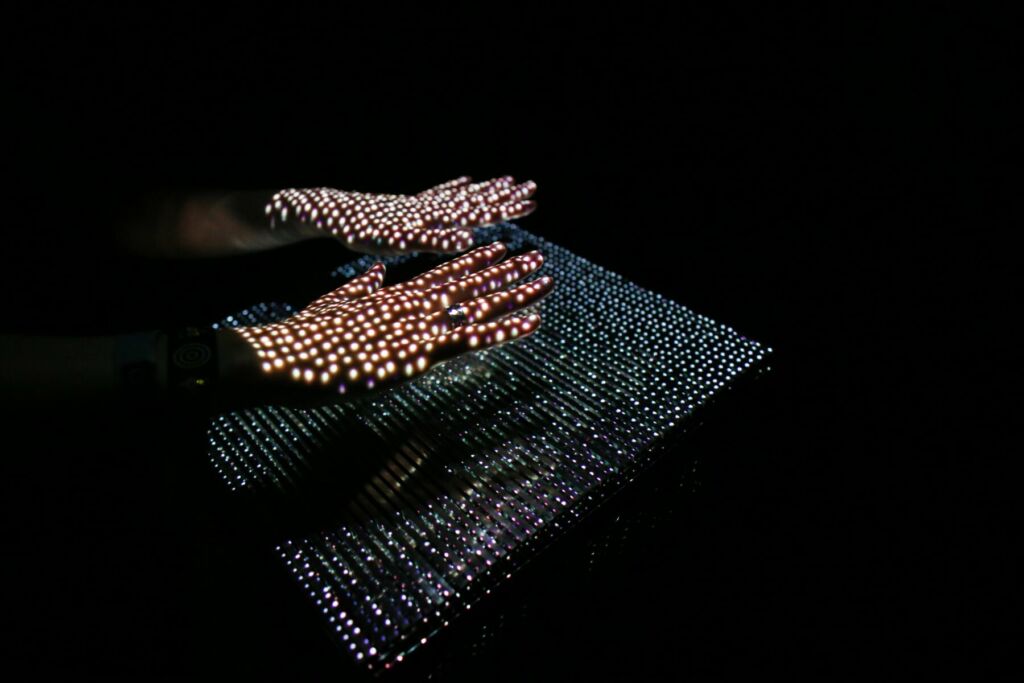
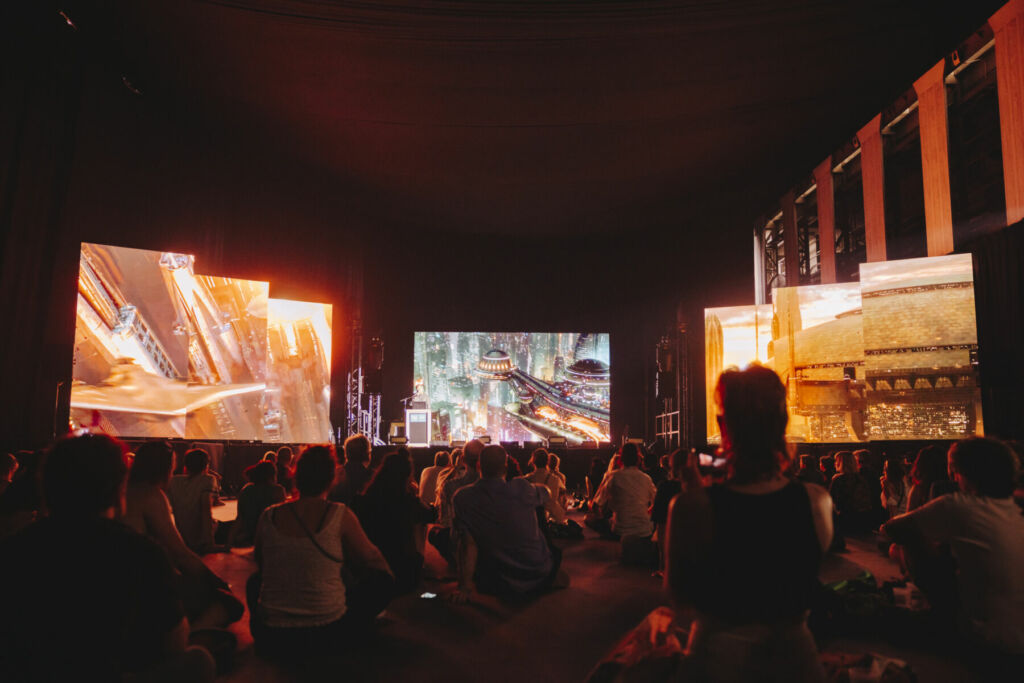
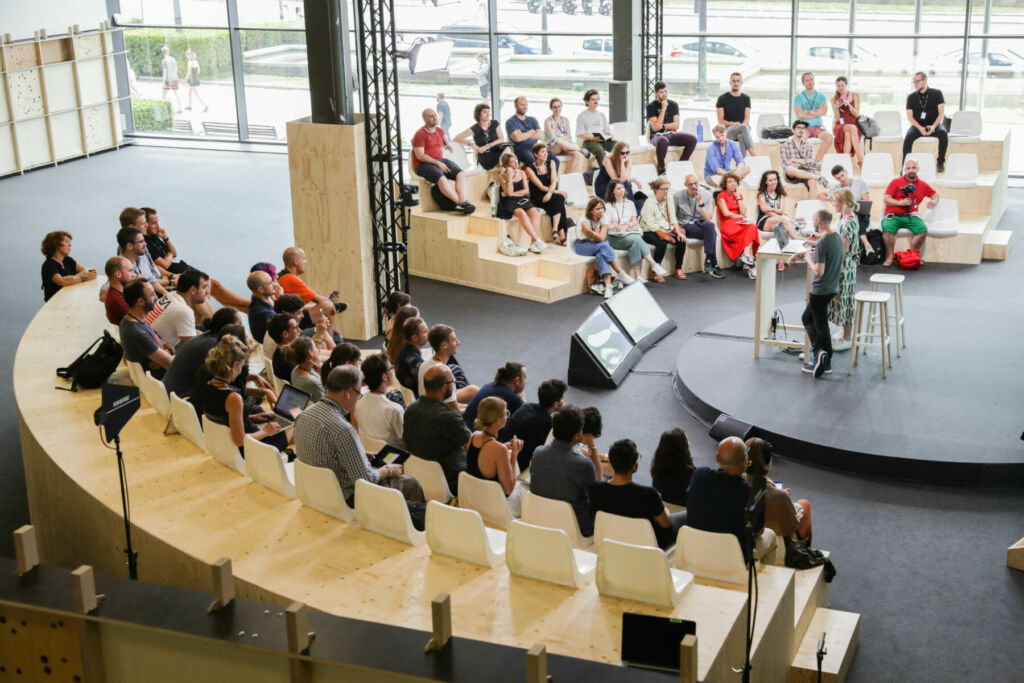
Also, Sónar+D 2023’s program of open debate forums is completed with the Art, Science and Technology Forum, organized together with Hacte. The festival’s opening activity will discuss the importance of the relationship between art and science, explore different artistic residency models, and analyze how artists respond to current challenges.
SINCE ITS FOUNDATION, PUZZLE X has been asking how cutting-edge technologies intersect with art, music and creative expression. For their interactive ‘MATTER EXPRESSIONISM’ masterclass, its founding director, Dr Zina Cinker, will join prominent guests to explore exciting advances in technology and deep science. Using a more performative approach, Playmodes & UPC-Telecos will present ‘Astres’ at Stage+D by MEDIAPRO, their line of research that explores the use of natural light in visual art.
Claire L. Evans, a modern polymath with a passion for technology, ecology and culture, will discuss the links and parallels between the natural world and information technology, ranging from fungal networks to computers made from brain cells, with visuals provided by Sofía Crespo. And, for ‘Listen to find questions’, Jana Winderen will deliver a hybrid talk and concert that explores the field recordings that she makes in difficult-to-access corners of the world.
Folguera’s main point is that transversal technology, like, AI, helps us even better to connect with all different worlds and disciplines and bring all different people together because Sónar is about culture. Not just as music culture; but as humans in how we do things that are specifically human. Like, we love film and art and painting and sculpture and music, and whatever works of art are made with data, all these things that make us specifically human. And all of these are part of culture. And she thinks that science is also part of culture, engineering, and technology. After all these years, we still consider technology as if it was something different from culture…
So, in 30 years, we will ask, we will respond to this question the same way; Can we conceive culture with artificial intelligence, or what technologies will be achieved in the future years? That will be part of us, our human culture, she concludes.
Through an exquisite program and a visionary concept, scientists, artists, technologists, and musicians are coming together this year in Sónar+D to celebrate this avant-garde mindset of defining and embracing the culture of AI with our most instinctive prompts and human nature.

